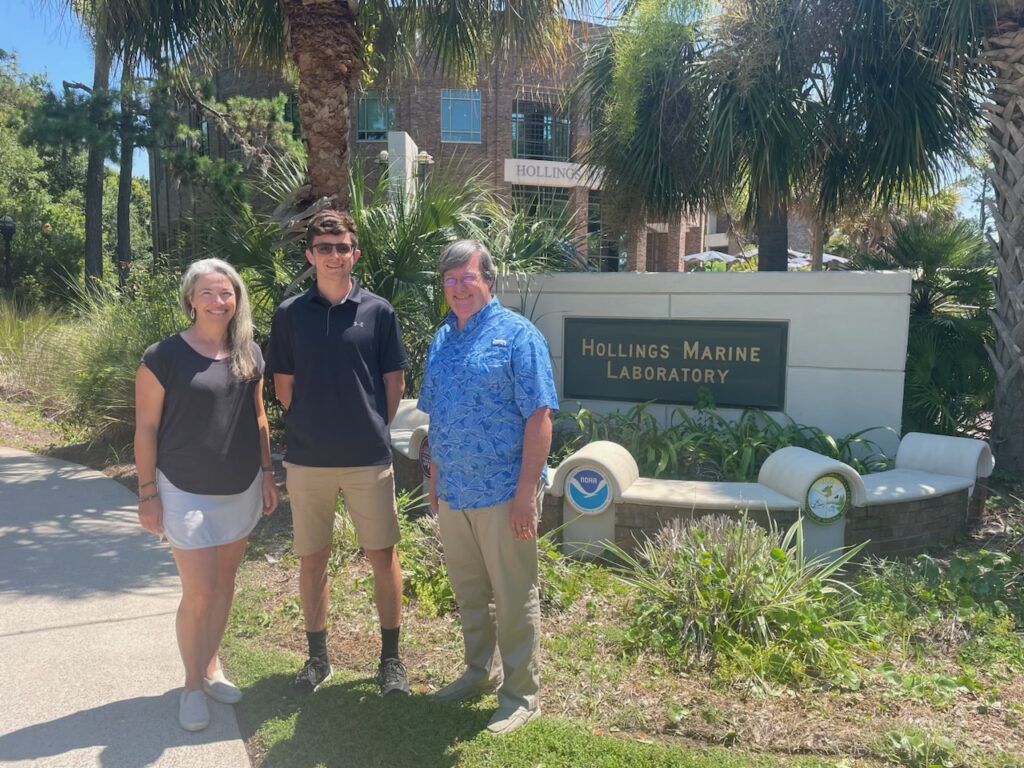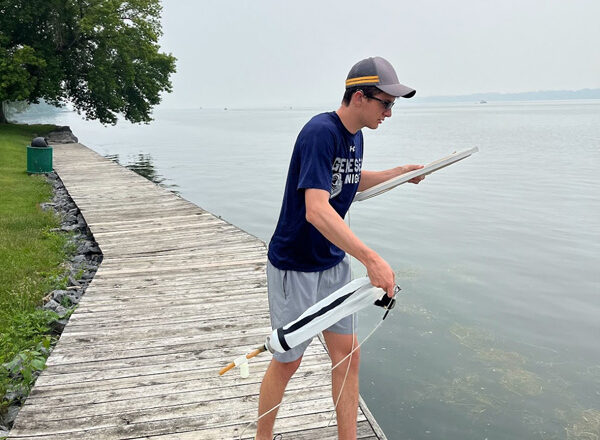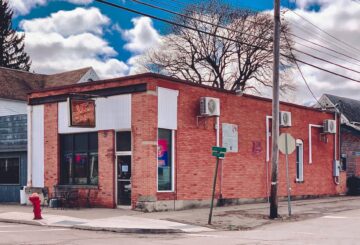Micah Ford of Arkport is biology major deploying water sampling gear along Oneida Lake
From the New York Sea Grant, Photo: Cornell/Jim Watkins
Ithaca, New York; 10/19/23. Through a summer internship with New York Sea Grant (NYSG), Micah Ford of Arkport, New York, gained real-world experience with environmental science at the Cornell Biological Field Station on Oneida Lake and at a National Oceanic and Atmospheric Administration laboratory in South Carolina.
“Summer internships with New York Sea Grant and its partners provide excellent learning and career-building opportunities for students interested in environmental science, from fisheries and aquatic sciences to coastal policy and community development,” said New York Sea Grant Associate Director Katherine Bunting-Howarth, Ph.D., J.D.
During his internship on Oneida Lake, Micah Ford, a SUNY Geneseo junior, used microscopy to analyze changes in the abundance and species of phytoplankton, including cyanobacteria, that can case harmful algal blooms (HAB) in the lake. Ford developed educational materials to assist citizen scientists with the National Oceanic and Atmospheric Administration (NOAA) Phytoplankton Monitoring Network (PMN), a nationwide, community-based effort by volunteers monitoring marine and freshwater phytoplankton and HAB. Ford’s internship also included the opportunity to visit the home of the PMN at NOAA’s Hollings Marine Laboratory in Charleston, South Carolina, for a week.

Ford is a biology major with an interest in environmental health. His internship was part of the NOAA Community Engaged Internship program.
NYSG Great Lake Fisheries and Ecosystem Health Specialist Stacy Furgal, Cornell Biological Field Station on Oneida Lake Associate Director and Cornell University Natural Resources and the Environment Senior Research Associate James Watkins, Ph.D., and Senior Research Associate Zoe Almeida, Ph.D. mentored Ford and a number of other summer interns in 2023.
“This internship experience provides students with hands-on opportunities to learn about New York’s fish communities and the aquatic food web as well as the ecological interactions in New York waters and the innovative technologies supporting research that informs management of the Great Lakes and its watershed,” said Watkins.
“Micah’s project contributes to providing an avenue for the community to directly participate in citizen science,” Furgal said.

To apply for a future internship opportunity with New York Sea Grant, watch for information posting at http://www.nyseagrant.org.
New York Sea Grant is a cooperative program of Cornell University and the State University of New York. NYSG has been bringing science to the shores of New York state since 1971 and is one of 34 university-based programs under the NOAA National Sea Grant College Program.
The Cornell Biological Field Station on Oneida Lake at Shackelton Point addresses the issues of changing aquatic ecosystems in New York state and beyond. Research encompasses such concerns as fisheries sustainability, invasive species, and climate change impact on the aquatic ecosystem. Ten or more undergraduates are summer interns here each year.
Learn more at https://cals.cornell.edu/biological-field-station-shackelton-point/.





